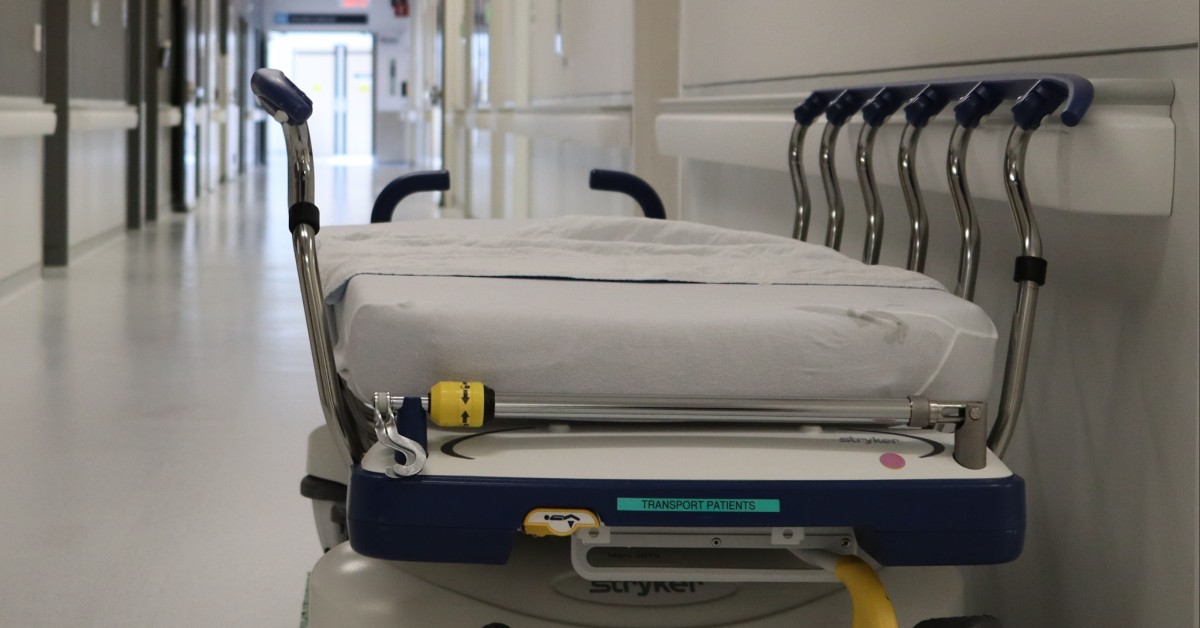
How Much Will You Earn with a Master of Science in Nutrition?
Based on what we eat, too many of us don't [...]

You can work your way up to a position in hospital facilities management without the 'right' degrees but good luck landing this role without the right certification. If your goal is to oversee infrastructure and facilities operations for a large hospital or medical center, you're going to need the Certified Healthcare Facility Manager (CHFM) designation.
Facilities maintenance and management in hospitals and medical centers involve a lot more than keeping everything clean and in good working order. Hospital maintenance, security, and operations impact patient safety and patient outcomes. They can even shut a hospital down: when equipment and procedures aren’t up to code, a hospital can lose its Joint Accreditation.
This means that hospital facilities managers—the folks who make sure that hospitals implement best practices and run according to Hoyle—must be well-versed in state health department codes, federal requirements, and other regulatory standards specific to hospitals and medical facilities plus general standards of health and safety.
You might think, then, that hospital facilities managers need to earn a specialized master’s degree, or at least a facilities-related bachelor’s degree, to qualify for their jobs. But in fact, programs in facilities management are rare, and even fewer pertain specifically to healthcare settings (though they do exist; the International Facilities Management Association (IFMA) Foundation maintains a complete list of accredited facilities management programs). And while some hospitals now mandate higher education and continuing education for any employee in a supervisory role, it’s still possible to work your way up through an apprenticeship or by starting out as a mechanic or janitor and rising through the ranks.
Experience and an associate’s degree in health facilities management (like the one offered by Owensboro Community and Technical College)
probably won’t be all you need if your ten-year plan includes landing a hospital facilities manager position, however. You’ll also need additional training, like the American Society for Health Care Engineering‘s continuing ed courses, and the Certified Healthcare Facility Manager (CHFM) credential offered by the American Hospital Association.
In this article about getting a hospital facilities management certification, we’ll cover:
A Certified Healthcare Facility Manager (CHFM) is any healthcare facilities manager who has passed the CHFM exam. They might be a hospital facilities management professional, or they might work in other medical settings, like clinics or doctor’s offices. Most likely, they do both. “The days when one facility manager oversees one hospital are long gone,” Tim Adams, FASHE, CHFM, CHC, is quoted as saying in the American Society for Health Care Engineering (ASCHE) 2017 Salary Survey results. “Along with a primary hospital, a facility manager could be overseeing 50 or more outpatient facilities.”
Certified hospital managers oversee the development, maintenance, administrative services, security, and operations of hospitals of all sizes; their daily duties may involve anything from construction to compliance updates. Their overarching responsibility, however, is to ensure that facilities issues never interrupt hospital operations, result in unsafe conditions for patients, or make it harder for healthcare professionals to do their jobs.
| University and Program Name | Learn More |
|
Stevens Institute of Technology:
Online Master of Business Administration
|
|
|
The University of Tennessee:
Online Master of Business Administration
|
There are several certifications for facilities managers and people interested in becoming facilities managers:
To be eligible to take the Certified Healthcare Facility Manager exam, you have to meet one of three criteria:
You can satisfy the eligibility requirements by working in:
Your degree doesn’t necessarily have to be in facilities management, but if you want to go that route, the following schools offer Bachelor of Science in Facility Management or a similar degree:
First, take the CHFM Self Assessment Exam (SAE). It is an online test that is very similar to the actual CHFM exam and will give you an idea of what you’ll need to study to pass the real thing. The American Society for Health Care Engineering (ASHE) has a resource list for exam-takers. It includes:
Be aware that some resources listed can only be accessed by ASHE members, who also receive a discount on the cost of most exam prep materials. Becoming a member may be worthwhile.
Don’t make the mistake of thinking you’ll ace this certification exam because you’ve worked in facilities management in other fields or you’re a good test-taker. Joshua Brackett PE, SASHE, CHFM, posted about his experiences taking the exam on LinkedIn, and stated outright that it shouldn’t be taken lightly. “This exam is not for entry-level individuals,” he wrote, “In fact, it is intentionally designed so you cannot come in off the street and take it. You have to either 1) know the information from years of being in the healthcare facilities industry or 2) study your butt off and read… a lot.”
The CHFM exam has 110 multiple-choice questions, 100 of which are scored and 10 of which aren’t. Certification candidates have two hours to answer them all. The exam is offered twice a day, Monday through Saturday, at more than 200 testing facilities around the US. AMP, the company that administers the exam, maintains an online list of testing centers.
The questions on the exam cover five key areas of facilities management:
Hospital facilities managers make good money with or without certification. According to PayScale, healthcare facility managers (a category that includes hospital facility managers) make about $98,000 annually; the top 10 percent earn around $130,000. That’s a lot more than facilities managers in other industries typically earn. Successfully pursuing your CHFM credential can boost your earning potential even more. According to the 2017 Health Facilities Management salary survey, having the CHFM credential can add more than $25,000 to your yearly paycheck.
You don’t have to be certified to work as a facilities manager in the healthcare industry. Even so, certification is absolutely worth pursuing if you’re interested in handling facilities management for hospitals. Hospitals and hospital networks may be the employers most likely to require facility managers to have one or more certifications. That’s because hospital facilities management is such an elaborate job.
Hospital facilities managers handle code compliance, maintenance and operations oversight, and financial management. They have to understand HVAC, electrical, and plumbing systems as thoroughly as they do budgeting, human resources management, and performance assessments. Today’s hospital facilities managers are also responsible for rolling out new technologies and meeting energy efficiency and sustainability goals. On top of it all, patients’ lives will be riding on your work when you become a healthcare facilities manager.
Maintaining your CHFM certification is proof that you have not only experience in medical facility management, construction, facility operations, and facility maintenance, but also the necessary core competencies and a willingness to keep up with emerging regulations and standards. At the end of the day, employers like candidates with knowledge and drive. This certification is proof that you have both.
(Last Updated on February 26, 2024)
Questions or feedback? Email editor@noodle.com

Based on what we eat, too many of us don't [...]

On average, health services managers earn over $100,00 per year. [...]

Top earners in substance abuse social work can earn over [...]

Social work leaders oversee organizations and work in advocacy roles [...]

Health care systems require social workers to assist individual patients [...]
Categorized as: Healthcare Management, Operations Management, Business & Management